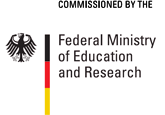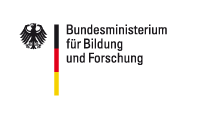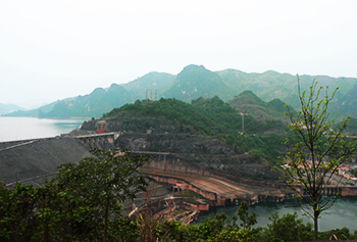- Funding opportunities
- Political framework
- Priorities of the cooperation
- Centre for health research
- Vietnamese-German University (VGU)
- The role of the International Bureau
Funding opportunities
For up-to-date information please go to 'Current Announcements'.
Please get in touch, if you have any questions about the support services provided by the International Bureau.
Political framework
The bilateral cooperation between Vietnam and Germany is based on an agreement on science and technology (STC) cooperation, which was signed on the occasion of the state visit of then Vietnamese President Truong Tan Sang in Berlin on 25 November 2015.
Priorities of the cooperation
Cooperation focuses on sustainable urbanisation, bioeconomy, water and environmental technologies, resource efficiency, health and biodiversity research.
Sustainable urbanisation
In 2017, the call 'Sustainable Development of Urban Regions' was published, focussing on Southeast Asian countries and China. After an initiation and definition phase, five projects with partners in Vietnam will be funded in a three year implementation phase until 2025..
Bioeconomy
Vietnam is one of the prioritised partner countries in the BMBF call 'Bioeconomy International', which has provided funding since 2013. Currently, four joint projects are funded.
Water and environmental technologies
Since 2006, a strategic partnership between the Federal Ministry of Education and Research (BMBF) and the Ministry of Science and Technology (MOST) has been established in the area of water and environmental technologies.
Against the backdrop of the development of both countries, global change and the United Nations' 2030 Agenda, a comprehensive perspective on sustainable development is becoming increasingly important for the German-Vietnamese research cooperation. The common goal is to focus research projects on concrete action for sustainable future development. To this end, both sides therefore strive for even closer coordination on joint research priorities and early involvement of all key stakeholders.
In the BMBF call CLIENT II (International partnerships for sustainable innovations) currently two projects in the fields of land and water management as well as adaptation to climate change are funded.
Centre for health research
In the context of the APRA call 'Establishment of research presences in the Asian-Pacific region', the project 'Vietnamese-German Centre of Excellence in Clinical Trials' (VG-EXCEL) was funded (2017-2022). In 2016, based on a long-standing cooperation between the Institute of Tropical Medicine at the University of Tuebingen and the Vietnamese partners, the 'Vietnamese- German Centre for Medical Research' (VG-CARE) was established at the 108 Military Hospital in Hanoi. With financial and legal support of two ministries (Science & Technology, Defence) beyond the funding period, VG-EXCEL aims at building up state-of-the-art infrastructure and capacity in clinical trials within VG-CARE.
Biodiversity research
Biodiversity research is a new area of bilateral cooperation. The project 'Innovative Methods to Biodiversity Exploration and Monitoring: Capacity Building with Partner Countries in Southeast Asia' (VIETBIO) laid the foundation for a long-term cooperation in biodiversity research with Vietnam and beyond (2017-2022). VIETBIO is led by Museum für Naturkunde in Berlin together with the Botanical Garden in Dahlem. Partner institutions in Vietnam are the Vietnam National Museum of Nature (VNMN) and the Institute of Ecology and Biological Resources (IEBR) in Hanoi, and the Southern Institute of Ecology (SIE) and the Institute of Tropical Biology (ITB) in Ho Chi Minh City.
The projects sets up an integrated biodiversity exploration and monitoring system for Vietnam, by providing state-of-the-art technical equipment and capacity building for young staff of partner institutes. Thus, VIETBIO contributes to the build-up process of competence on biodiversity research in Vietnam to foster an innovative and sustainable use of the rich flora and fauna of the partner country.
Vietnamese-German University (VGU)
A comprehensive realignment of Vietnamese higher education policy is set to take place with the help of international support. The Vietnamese-German University (VGU) in Ho Chi Minh City is Vietnam's first state university with international stakeholders. The goal of the Vietnamese government is to establish a new model of research-oriented universities. The VGU (an initiative of Hessia) was officially launched on 10 September 2008.
With its 36 member universities and institutions (including the TU9 network), the consortium VGU founded on 17 February 2009 is the academic backbone of the VGU. Permanent guest members on the executive board are the DAAD, the BMBF and the Hessian Ministry of Science and Arts (HMWK).
From 2022, all 18 MSc- and BSc courses which are conducted in English are offered at the new campus in Binh Duong province. The campus provides state-of-the-art lab facilities.
In the semester 2022/2 about 1,700 students from 17 nations were enrolled at VGU.
The role of the International Bureau
On behalf of the German Federal Ministry of Education and Research (BMBF), the International Bureau supports the goal of expanding the international network of German universities, research institutions and companies, in order to facilitate the acquisition of expertise and innovative advances for German science and industry. Thus, the International Bureau contributes to the implementation of the international dimension in the field programmes of the BMBF.










